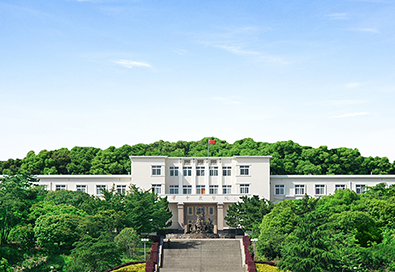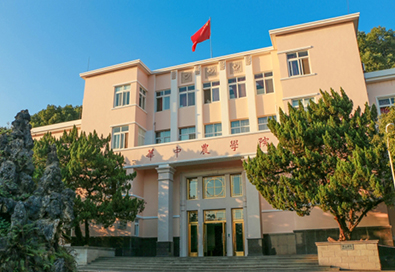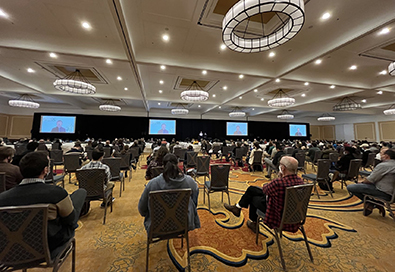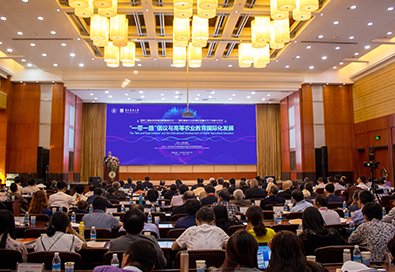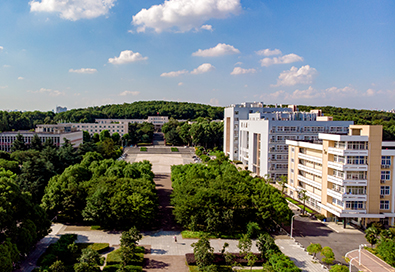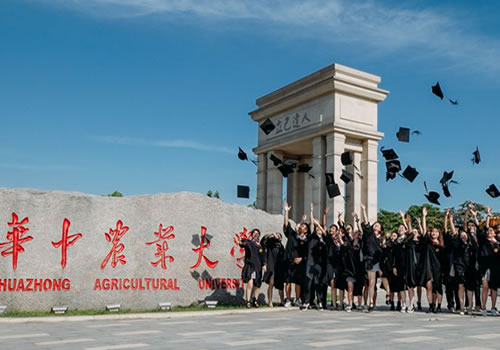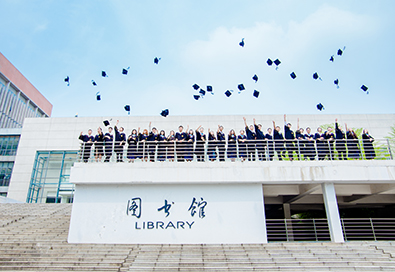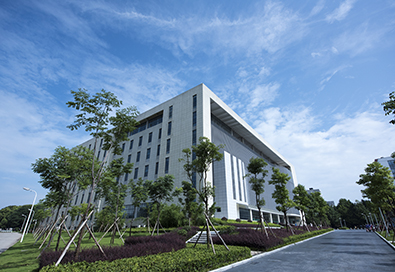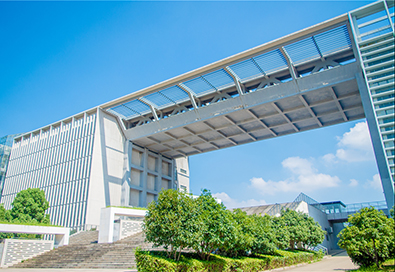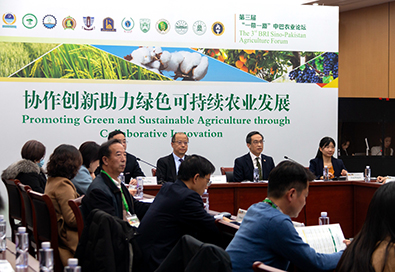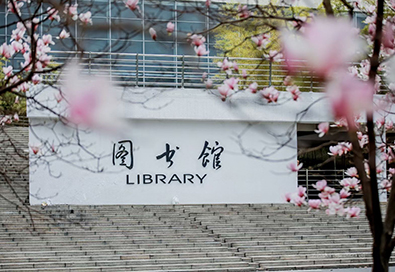Four generations of professors from Huazhong Agricultural University (HZAU) have transformed the small-scale shiitake mushroom farming in Suixian county of Suizhou, Hubei province, into a thriving industry.

Lv Zuozhou (L 2nd, back row), Bian Yinbing (R 1st, back row), and Xiao Yang (R 2nd, front row), pose for a photo with their students in front of the statue of Yang Xinmei. [Photo/news.hzau.edu.cn]
In 1978, at the age of 68, Yang Xinmei, an HZAU professor, successfully cultivated shiitake mushrooms grown on logs in Suixian county, paving the way for the development of the Hubei shiitake mushroom industry.
Recognizing that shiitake mushroom strains are the backbone of the industry, Yang introduced the "79 series" from Japan, aiming to boost farmers' incomes.
Six young men, including Jia Yunliang, from Yangjiapeng village of Suixian county, learned to cultivate shiitake mushrooms under Yang's guidance.
Jia recalled, "The earnings of our daily labor barely covered meals." However, after following the professors' instructions, he significantly increased his earnings, producing 150 grams of shiitake mushrooms per log and earning three times the average monthly wage. The success sparked interest among villagers, who soon embraced this new source of income.
Within four years, the team identified six superior shiitake mushroom varieties from 218 strains, substantially improving yields.
Yang also developed techniques such as soaking shiitake mushroom logs to increase fruiting rates, boosting the log-grown shiitake mushroom crop tenfold.
By 1982, Jia's income from mushrooms reached 10,000 yuan ($1421.96), significantly transforming his family's financial situation. "Shiitake mushroom farming changed our lives," he said, and it paid for his children's education.
Lyu Zuozhou, who earned his master's degree under Yang's supervison, dedicated years to researching and developing high-yield shiitake mushroom varieties. In the late 1990s, he began experimenting with bag cultivation, which simplified the process but also introduced issues such as high contamination rates.
In 2002, Bian Yinbing, who just completed his doctoral studies at HZAU, joined the team, focusing on reducing contamination in shiitake mushroom cultivation. His research yielded means of controlling contamination rates to below 5 percent, significantly improving yields for local farmers. He also began molecular breeding studies to enhance strain resilience, extending harvest periods and increasing profitability.
With every household engaging in shiitake mushroom farming, the industry flourished. The integration of mechanization and automation has further modernized production, enabling farmers to produce shiitake mushrooms more efficiently.
Bian advocates for a "centralized production, decentralized harvesting" approach to promote automation in mushroom cultivation.
In 2011, Xiao Yang, then a PhD student under Bian's supervision, joined the team, focusing on how to apply modern information technology to shiitake mushroom breeding and cultivation. Xiao noted that their research has advanced the understanding of the mechanisms behind mushrooms' cadmium tolerance and the genetic basis of their adaptive evolution.
In 2024, the team achieved a world first by completing the testing and assembly of the first complete shiitake mushroom genome.
In fact, the team is helping local farmers upgrade to intelligent production.
At the Edible Fungi Technology Center, Cao Pengcheng, a postgraduate student currently studying at HZAU, explained that their project aimed at refining strain selection for different seasons and cultivation methods to ensure the best varieties reach farmers.
In tandem, an AI recognition system is being tested to enhance quality control in mushroom production, allowing for rapid identification of viable mushroom strains and reducing human error, thus improving overall efficiency.
Bian, Xiao and their team are committed to advancing intelligent shiitake mushroom production techniques, aiming to establish a fully automated system in Suixian county.
With HZAU's support, the region is transitioning towards large-scale, facility-based, and intelligent shiitake mushroom farming.
Today, the shiitake mushroom industry in Suixian county is thriving, with thousands of households participating in cultivation. Under the guidance of HZAU professors, the local agricultural sector is poised for transformation, marking a new era of prosperity for the region, said local officials and farmers.


